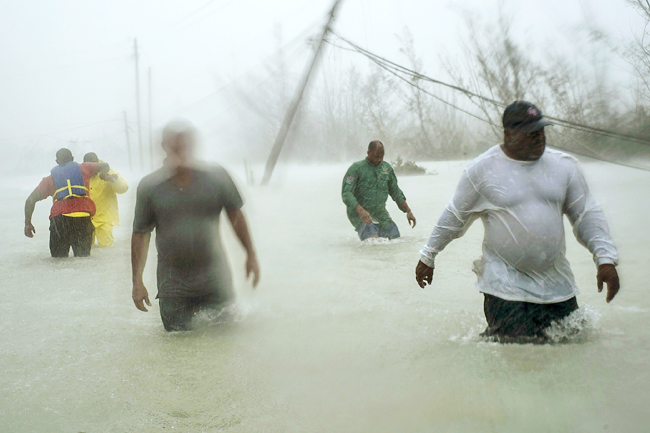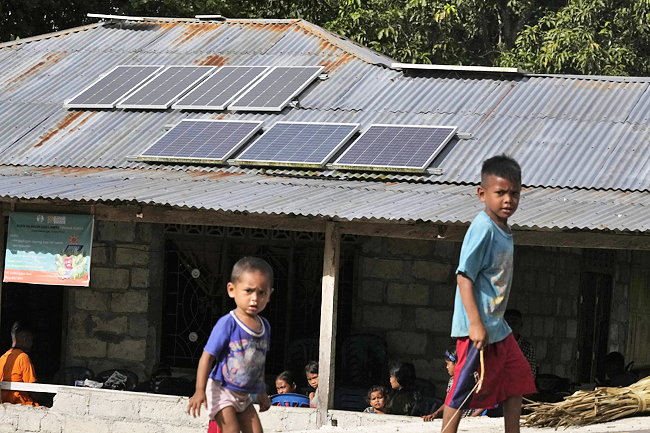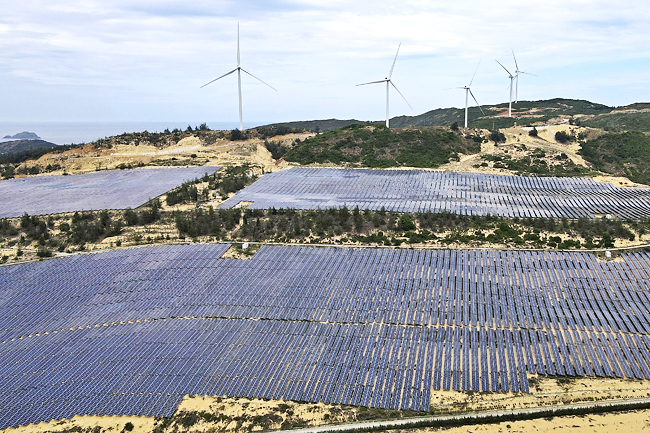BAKU (AP) – A complex international two-week-long game of climate change poker is convening. The stakes? Just the fate of an ever-warming world.
Curbing and coping with climate change’s worsening heat, floods, droughts and storms will cost trillions of dollars and poor nations just don’t have it, numerous reports and experts calculate.
As United Nations (UN) climate negotiations started yesterday in Baku, Azerbaijan, the chief issue is who must ante up to help poor nations and especially how much.
The numbers are enormous. The floor in negotiations is the USD100 billion a year that poor nations – based on a categorisation made in the 1990s – now get as part of a 2009 agreement that was barely met. Several experts and poorer nations say the need is USD1 trillion a year or more.
“It’s a game with high stakes,” said Climate Analytics CEO Bill Hare, a physicist. “Right now the fate of the planet depends very much on what we’re able to pull off in the next five or 10 years.”
But this year’s talks, known as COP29, won’t be as high-profile as last year’s, with 48 fewer heads of state scheduled to speak. The leaders of the top two carbon polluting countries will be absent.



But if money negotiations fail in Baku, it will handicap 2025’s make-or-break climate negotiations, experts said.
Not only is dealing with money always a touchy subject, but two of the rich countries that are expected to donate money to poor nations are in the midst of dramatic government changes.
Even though the United States (US) delegation will be from Biden Administration, the re-election of Donald Trump, who downplays climate change and dislikes foreign aid, makes US pledges unlikely to be fulfilled.
The overarching issue is climate finance. Without it, experts said the world can’t get a handle on fighting warming, nor can most of the nations achieve their current carbon pollution-cutting goals or the new ones they will submit next year.
“If we don’t solve the finance problem, then definitely we will not solve the climate problem,” said former Colombian deputy climate minister Pablo Vieira, who heads the support unit at NDC Partnership, which helps nations with emissions-cutting goals.
Nations can’t cut carbon pollution if they can’t afford to eliminate coal, oil and gas, Vieira and several other experts said.
Poor nations are frustrated that they are being told to do more to fight climate change when they cannot afford it, he said.
And the 47 poorest nations only created four per cent of the heat-trapping gases in the air, according to the UN.
About 77 per cent of the heat-trapping gas in the atmosphere now comes from the G20 rich nations, many of whom are now cutting back on their pollution, something that is not happening in most poor nations or China.
“The countries that are rich today have become rich by polluting the Earth,” said President of World Resources Institute Ani Dasgupta.
The money being discussed is for three things: Helping poor nations switch from dirty fossil fuels to clean energy; helping them adapt to the impacts of a warming world such as sea level rise and worsening storms; and compensating vulnerable poor nations for climate change damage.
“Should the global community fail to reach a (finance) goal, this is really just signing the death warrant of many developing countries,” said Director of the Center for Climate Change and Development in Nigeria Chukwumerije Okereke.
Business Professor who heads Imperial College’s Centre for Climate Finance and Investment in the United Kingdom (UK) Michael Wilkins said since 2022 total climate finance has been nearly USD1.5 trillion. But only three per cent of that is actually geared toward the least developed countries, he said.
“The Global South has been repeatedly let down by unmet pledges and commitments,” said Director General of New Delhi-based Centre for Science and Environment Sunita Narain.
“Finance is really the key component that compels all types of climate action,” said Adaptation Director at the Natural Resources Defense Council Bahamian climate scientist Adelle Thomas.
“Without that finance, there’s simply not much that developing countries in particular can do.”
It’s an issue of both self-interest and justice, Thomas and others said. It’s not charity to help poor nations decarbonise because rich nations benefit when all countries cut emissions. After all, a warming world hurts everyone.
Compensating for climate damage and helping nations prepare for future harm is a matter of justice, Thomas said.
Even though they didn’t create the problem, poor nations – especially small island nations – are particularly vulnerable to climate change’s rising seas and extreme weather.
Thomas mentioned how 2019’s Hurricane Dorian smacked her grandparents home and “the only thing left standing was one toilet”.
The trillion-dollar figure on the table is about half of what the world spends annually on the military. Others said global fossil fuel subsidies could be redirected to climate finance; estimates of those subsidies range from the International Energy Agency’s USD616 billion a year to the International Monetary Fund’s USD7 trillion a year.
“When we need more for other things, including conflict, we seem to find it,” UN Environment Programme Executive Director Inger Andersen said. “Well, this is probably the largest conflict of all.”
A UN climate finance committee report looked at the need from 98 countries and estimated it as ranging from USD455 billion to USD584 billion per year.
The money isn’t just direct government aid from one nation to another. Some of it comes from multinational development finance banks, like the World Bank. There’s also private investment that will be considered a large chunk. Developing nations are seeking relief from their USD29 trillion global debt.
Andersen said at least a sixfold increase in investment would be required to get on the path to limit future warming to just another two-tenths of a degree Celsius from now, which is the overarching goal the world adopted in 2015.
Andersen’s agency calculated that with nations’ current emissions-curbing targets, the difference between well-financed and current efforts translates to half a degree Celsius less future warming.
Experts said stepped-up efforts that could reduce future warming even more also costs more.
Who will pay is another sticking point. Climate talks for decades have used 1992 standards to categorise two groups of nations, essentially rich and poor, deciding that rich nations are the ones to financially help poor ones. Financial circumstances have changed.
Developed nations want those countries that couldn’t afford to give before, but now can, included in the next round of donors. But those nations don’t want those obligations, said E3G analyst Alden Meyer, a climate negotiations veteran.
“It’s a very fraught landscape to think about huge scale-up of existing climate finance,” Meyer said. – Seth Borenstein



















































